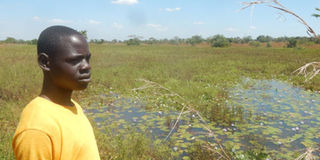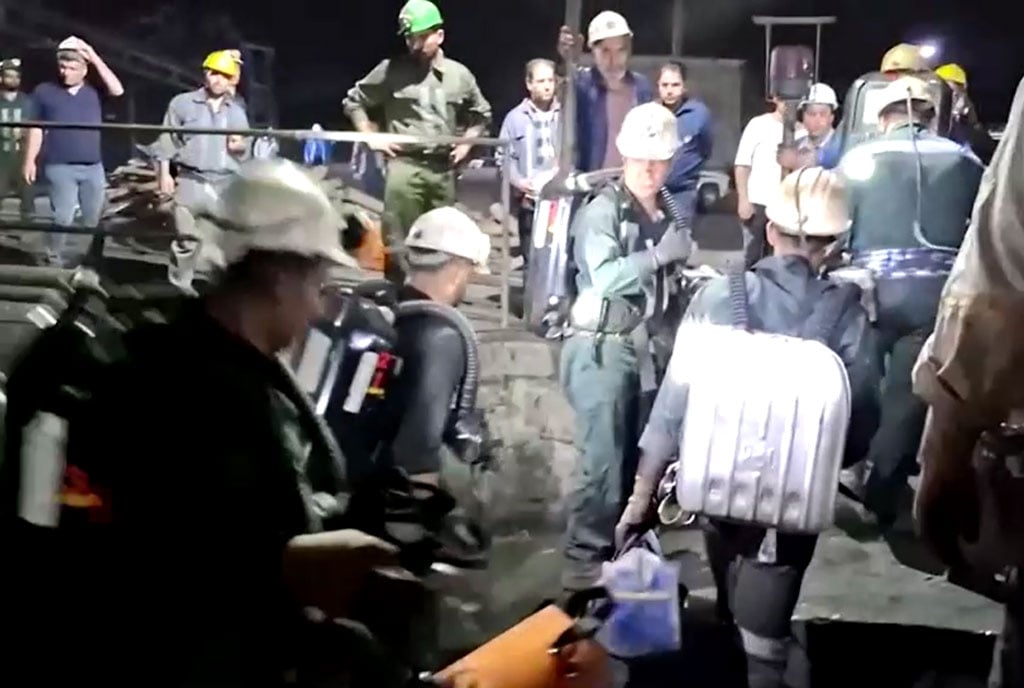Prime
Climate change: Experts draw lessons from locals

Restored. A man looks at Adolo wetland in Orum Sub-county, Otuke District. The wetland was previously used for rice farming but residents restored it. FILE PHOTO.
What you need to know:
- Currently, Otuke District has embarked on climate action plan implementation efforts to better prepare and protect their communities from the impacts of climate change.
- The district is conducting action research and popular education that supports community-led efforts to build resilience and advance adaptation planning priorities identified by residents of vulnerable communities.
Otuke. Visitors from West Africa on Monday praised residents in the remote villages of Otuke District for measures they have undertaken to restore wetlands and manage the ecosystem.
The Partners for Resilience (PFR) alliance visited Otuke District to learn how the communities are scaling up good risk management practices.
The six-member team from Mali was accompanied by two technical advisors from Nairobi, Kenya and The Hague in the Netherlands.
They were led by a programme specialist in charge of disaster risk reduction with Care International, Ms Monica Anguparu.
While in Otuke, the team had a brief meeting with the chief administrative officer, Mr Joshua Mabiya.
The lessons
Later, Te-abala wetland management committee members took the visitors through their (community) roles in managing and restoring wetlands.
The locals demonstrated to the visitors the measures in form of songs and dance.
The visitors learnt that when locals are empowered, they can conserve the environment.
For instance, in Otuke, the residents are adding value to Shea butter, making them earn more money than when they cut down trees to burn charcoal.
They took the visitors through the process of making Shea butter, which they sell to improve their livelihood.
Managing wetlands
Also, the community members have embarked on wetland demarcation due to their social and economic impacts.
They have formulated local songs and dances geared towards sensitising the public about the need to conserve the environment, and also urge leaders to formulate people centred plans, laws and policies.
In addition, the communities have formulated their by-laws for environmental protection and also adopted apiary farming as an alternative means of earning a livelihood other than destroying the environment.
“To be honest, you people know a lot about wetland conservation than my people in the Netherlands,” Ms Kimberley Ogonda, an advocacy expert from the Netherlands, said.
Later in the day, the visitors met another village savings and loan association (VSLA) group in Olilim Sub-county.
At Olilim Trading Centre, Ms Sarah Ejang, the secretary of Moo Yao Women’s Group, took them through VSLA methodology and its benefits.
The team continued to Soroti District to meet other PFR alliance field sites on Tuesday, Ms Anguparu said.
The team is also expected to meet the Parliamentary Forum on Climate Change and government officials in Kampala this week.
The idea is to learn the work that government is doing in terms of integrating risk management either in policy or scaling up the good practices to the other districts.
Just like other parts of the country, Otuke is susceptible to climate variability and is currently suffering from the impacts of climate change.
However, the rural poor are worst hit by these impacts because they rely majorly on natural resources for their livelihoods.
Other measures
Currently, Otuke District has embarked on climate action plan implementation efforts to better prepare and protect their communities from the impacts of climate change.
The district is conducting action research and popular education that supports community-led efforts to build resilience and advance adaptation planning priorities identified by residents of vulnerable communities.




